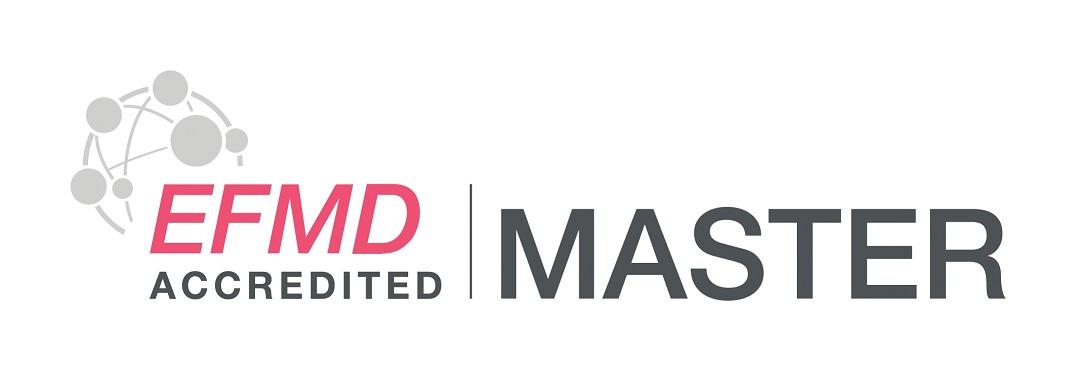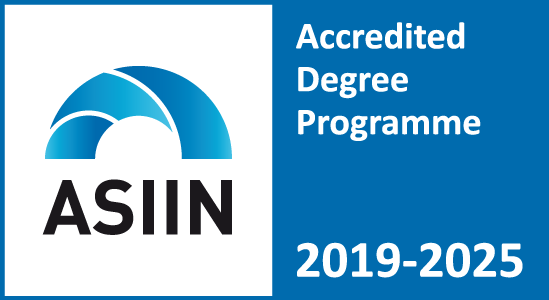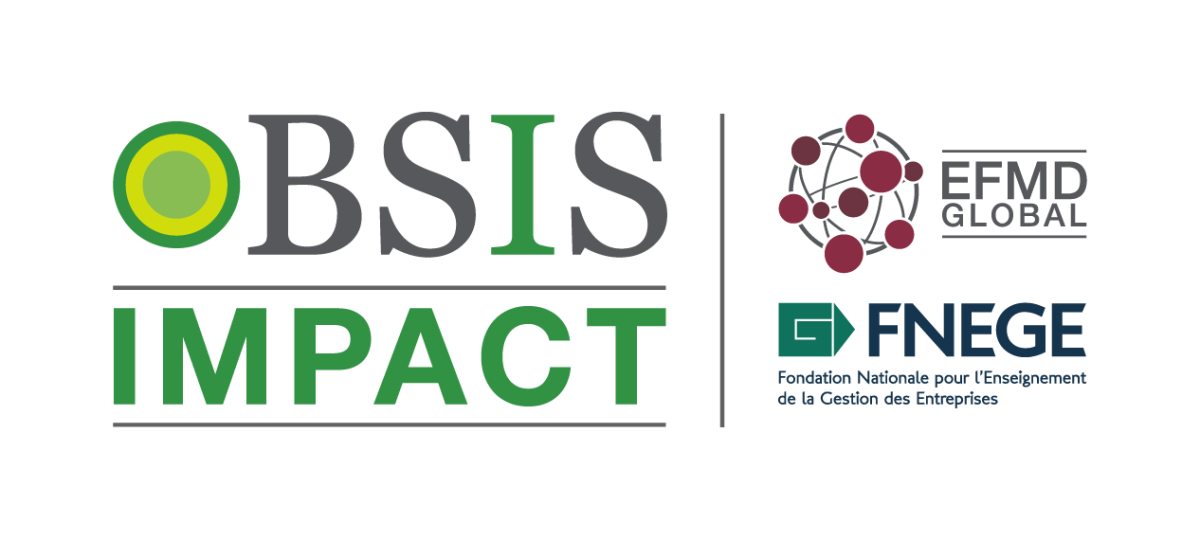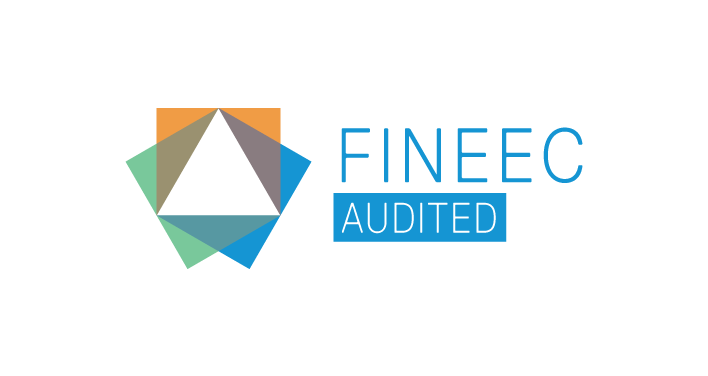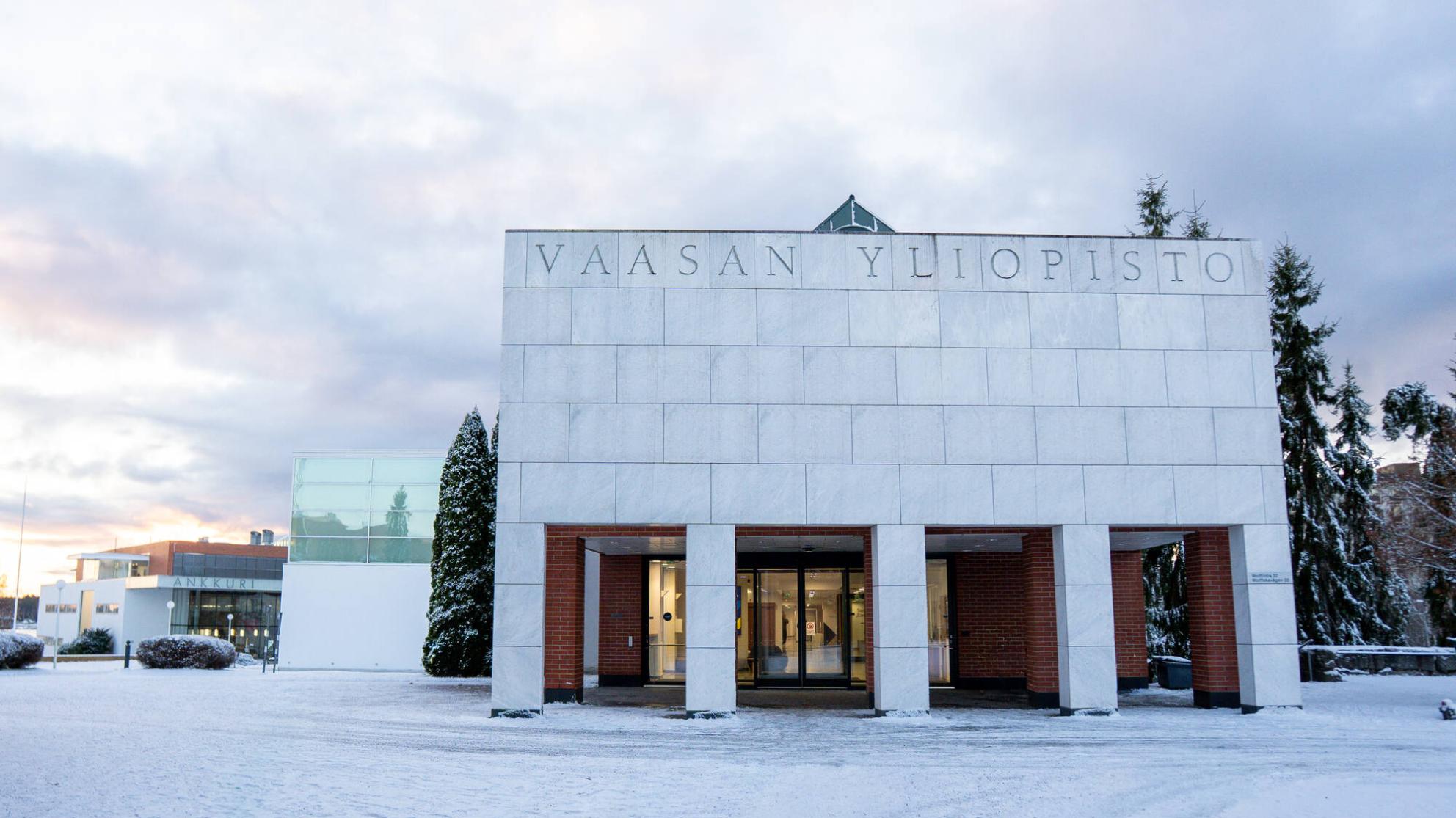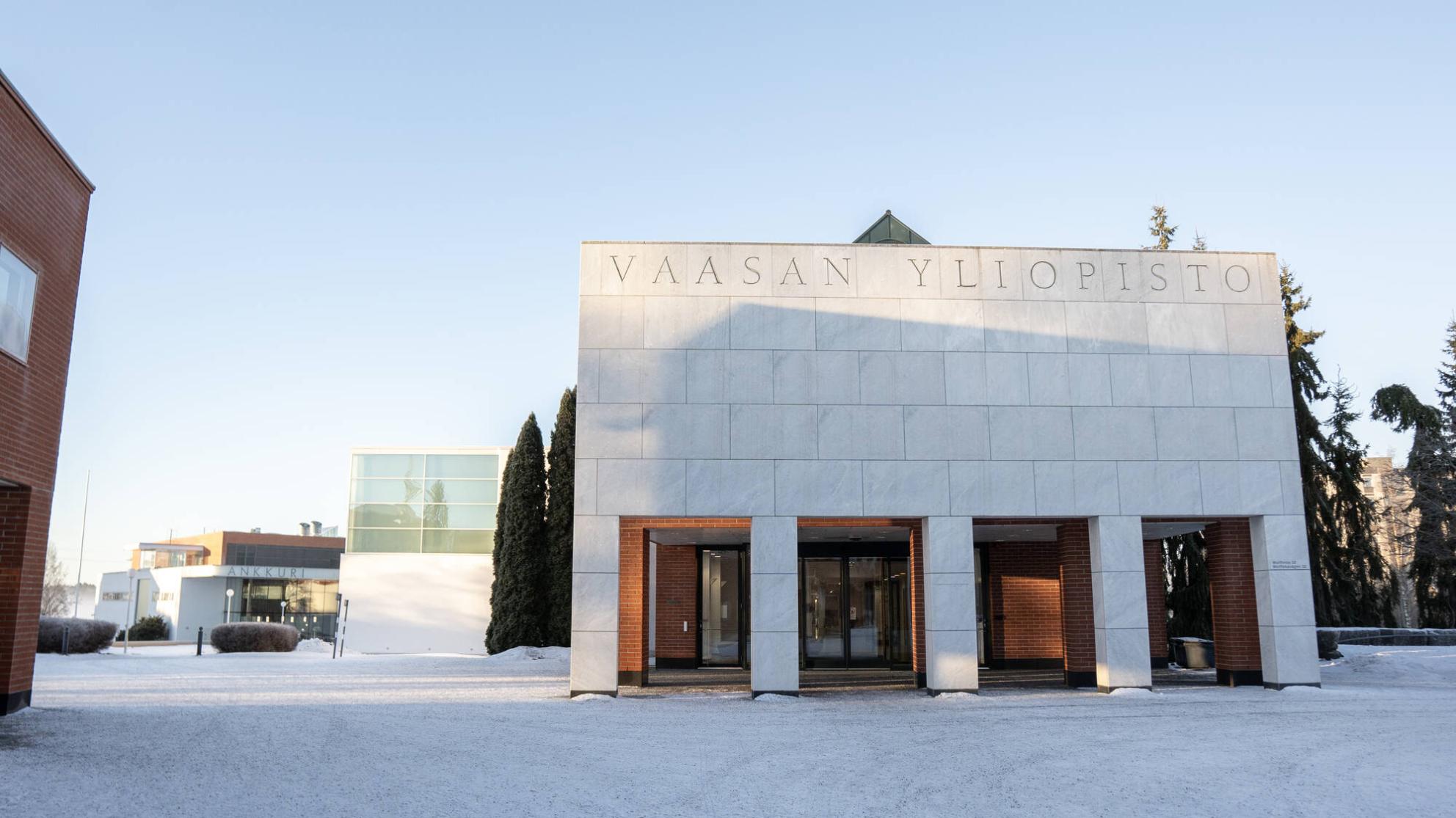
Rankings, accreditations and evaluations

To reach our goals and continuously improve our university, we regularly evaluate the quality and effectiveness of education, research and societal impact as well as the university services through external and internal evaluations.
Rankings
Rankings are one way of assessing and ranking universities. The benchmarks primarily measure research performance, as high standards of research are valued. Universities are often compared in terms of peer review and the number of citations in scientific publications. Various rankings also measure reputation, scientific and teaching excellence, the number of degrees, internationality and Nobel laureates. All rankings use different data and calculation models. There are both university rankings and discipline-specific rankings.
The ranking results provide important information for the university on its strengths. In particular, the strengths of the University of Vaasa include research quality and impact, as well as international outlook.
Below you can find more information on the rankings in which the University of Vaasa has been placed.
- Shanghai Global Ranking of Academic Subjects (GRAS)
-
For the third year in a row, the University of Vaasa is ranked among the world’s top 50 (rank=43) in Business Administration in the Global Ranking of Academic Subjects (GRAS), published by Shanghai Ranking (2025).
The ranking takes into account, for example, the quality and impact of research, publications in top journals, international cooperation, and significant academic awards. The ranking covered 55 disciplines in natural sciences, engineering, life sciences, medical sciences, and social sciences.
Read news about the ranking result. - THE (Times Higher Education) Impact Rankings
-
Times Higher Education (THE) Impact Rankings measure global universities’ success in delivering the United Nations’ Sustainable Development Goals (SDGs). The UN's 2030 Agenda for Sustainable Development contains 17 SDGs.
In the 2025 ranking, the University of Vaasa placed in the global top 300 in three key SDGs: Affordable and Clean Energy (SDG 7), Climate Action (SDG 13) and Peace, Justice and Strong Institutions (SDG 16) Additionally, the university shared 1st place in Finland in: Affordable and Clean Energy (SDG 7) and Decent Work and Economic Growth (SDG 8).
This marks the university’s best performance to date. Its overall ranking improved to the 601–800 band (from 801–1000 in 2024), and its total score reached a record 69.2 (up from 62.6 in 2024).
- THE (Times Higher Education) Small Universities Ranking
-
The University of Vaasa is ranked 17th in the Times Higher Education (THE) Small Universities Ranking. Among the Nordic universities, the university is ranked 2nd. THE Small Universities Ranking evaluates 88 universities around the world.
The 2024 THE Small Universities Ranking highlights those universities that deliver outstanding results with a relatively small student body while meeting all the criteria of THE World University Ranking.
- THE (Times Higher Education) World University Rankings
-
The THE (Times Higher Education) World University Rankings evaluates universities in five areas: teaching, research environment, research quality, international outlook and industry.
The University of Vaasa was ranked in the 401-500 bracket worldwide in the 2026 edition of the ranking where 2,191 universities were evaluated. The University of Vaasa performed especially well in research quality and international outlook.
- The (Times Higher Education) World University Rankings by subject
-
The University of Vaasa participated THE (Times Higher Education) World University Rankings by Subject 2026 in four fields, achieving the following results:
- Business and Economics: 251–300
- Computer Science: 401–500
- Engineering: 401–500
- Social Sciences: 401–500
The THE World University Rankings by subject ranking uses the same trusted and rigorous performance indicators as the Times Higher Education World University Rankings, but the methodology has been recalibrated to suit the individual fields.
- THE (Times Higher Education) Young University Rankings
-
The University of Vaasa is ranked 73rd among the 673 young universities evaluated, and 6th among Nordic universities.
The 2024 THE Young University Rankings list the world’s best universities that are 50 years old or younger. It applies the same methodology as the World University Rankings, with recalibrated weightings to reflect the profiles of young universities.
The ranking evaluates universities in five areas: research quality, industry, international outlook, research environment, and teaching.
- U.S. News Best Global Universities
-
The University of Vaasa has been ranked in the Best Global Universities ranking published by U.S. News (2025). The 11th annual U.S. News Best Global Universities rankings examine the leaders in key academic subject areas.
Economics and Business
153rd in Economics and Business – placing the university among the top 7 Nordic and top 3 Finnish universities in the field.Engineering
671st in Engineering – placing the university among the top 19 Nordic and top 5 Finnish universities in the field.
International collaboration:
105th globally
48th in Business and Economics
43rd in Engineering
Citations (percentage of total publications that are among the 10% most cited):
48th globally
42nd in Business and Economics
63rd in Engineering
Explore the rankings here. - QS World University Rankings: Europe
-
The University of Vaasa reached a new milestone in the QS World University Rankings: Europe 2026 by securing the number one position in Europe for ‘Citations per Paper’. In the overall standings, the University of Vaasa is ranked 301st. The university excelled also in student mobility indicators.
Read news about the ranking. - QS World University Rankings: Sustainability
-
The University of Vaasa ranked 679th in the QS Sustainability Rankings 2026.
Using a methodology comprised of indicators designed to measure an institution's ability to tackle the world’s greatest environmental, social and governance (ESG) challenges, the QS Sustainability Rankings 2026 ranks 2,022 universities from around the world by evaluating them in social and environmental sustainability.
Accreditations
Accreditations are quality labels that universities can apply for at the international level for their teaching. The University of Vaasa uses accreditations as a means of improving the quality of its activities. The aim is to obtain an international quality label for all the university's degree programmes in the future.
- We are a close-knit and international university community
- We make an innovative and responsible contribution to the society around us
- We promote sustainability in all our activities
- Accredited degree programmes in business studies
-
AACSB
The University of Vaasa received an internationally renowned AACSB accreditation for business studies in August 2024. The accreditation is valid for six years and it covers all degree programmes in business studies. The recognition reflects excellence and high quality in economics and business administration education and research. Less than 6 percent of the world's schools offering business degree programs have received AACSB accreditation.
Established in 1916, AACSB International (AACSB) is the world’s largest business education alliance, connecting educators, learners, and business to create the next generation of great leaders. With members in over 100 countries and territories, AACSB fosters engagement, accelerates innovation, and amplifies impact in business education.
EFMD
EFMD is a quality label for business and management education programmes with an international focus.
University of Vaasa EFMD-accredited master's programmes in business studies:
- Accredited degree programmes in engineering
-
International accreditation by the German organisation ASIIN is mainly for degree programmes in technology and science.
ASIIN-accredited bachelor's and master's programmes at the University of Vaasa:
- International Master's Programme in Industrial Management (MSc) (tuition in English)
- International Master's Programme in Industrial System Analytics (DI) (tuition in English)
- Bachelor´s Programme in Technology (BSc) (tuition in Finnish)
- Bachelor´s Programme in Industrial Management/ Information Systems Science (BSc) (tuition in Finnish)
- Master´s Programme in Electrical Engineering and Energy Technology (MSc) (tuition in Finnish)
- Master´s Programme in Information Systems Science (MSc) (tuition in Finnish)
- Master's Programme in Technical Communication (M.Sc.) (tuition in Finnish)
External evaluations
- Business School Impact System (BSIS) assessment
-
The University of Vaasa has received international recognition for its significant economic, societal, and regional impact.
A recent Business School Impact System (BSIS) assessment report highlights the university’s key role in regional development and its strong position within the Nordic region’s largest energy technology cluster, the EnergyVaasa network.The University of Vaasa has become the first Finnish and Nordic higher education institution to be awarded the prestigious BSIS label. This certification is an international recognition granted to institutions that demonstrate broad regional, societal, and academic impact. The BSIS assessment covers seven areas of impact, and globally, only 98 institutions have received this recognition.
According to the report, the University of Vaasa’s total economic impact on the region amounts to €254 million. The university enhances the region’s attractiveness and actively collaborates with local higher education institutions, businesses, and authorities. Within the EnergyVaasa cluster, the university plays a central role in promoting innovation and sustainable development.
- RAE Research Assessment Exercise
-
Overall research evaluations have been carried out at the university in 2022, 2015 and 2010. Diversity, meaningfulness, and focus on future were important features of the recent international research evaluation in 2022 (Research Assessment Exercise, Report 2023).
It targeted at various aspects of research performance including scholarly publications, research funding, research cooperation and environment, and societal impact of research. According to the expert panels’ assessment, many of the university's research groups are at a high international level. The represented and timely research fields of the university enable development towards increasingly high-quality international research. The university's regional cooperation is also very strong, e.g. in the form of joint research projects.
Read more about RAE Univaasa 2022: Research at the University of Vaasa has been assessed: several research groups at a high international level
- HR Excellence in Research (HRS4R)
-
The University of Vaasa systematically takes care of the conditions for conducting research and the work of researchers. The university has also received recognition for actively enhancing researchers' working conditions and career development.
The university participates in the European Commission's quality program (HRS4R). The related external evaluation awarded the university the HR Excellence in Research quality label for the first time in 2014. For receiving the quality label, the university commits to the common European recommendations and principles in all its practices aimed at improving the working conditions of researchers.
In the re-evaluation in the spring of 2023, the university again performed successfully. According to the evaluation team, the University of Vaasa offers the opportunity to build a successful university career in an international and diverse community.
Read more about HRS4R: Recognition for the University of Vaasa as an inspiring and responsible work environment
- FINEEC Audit
-
The University of Vaasa's quality management system successfully passed the external audit conducted by the Finnish Education Evaluation Centre (FINEEC) in 2024. The audit is valid for six years, until December 2030. The evaluation conducted by the international audit team can be read in the evaluation report published by Karvi.



